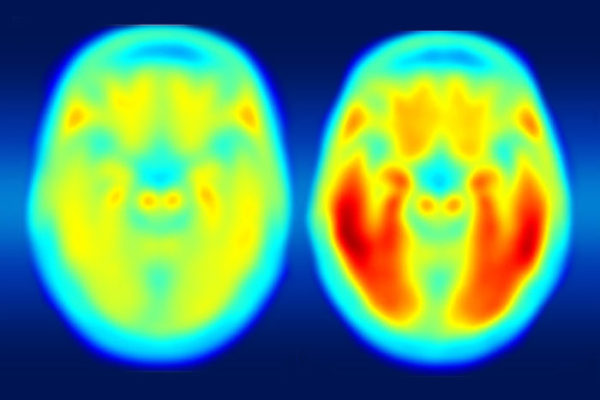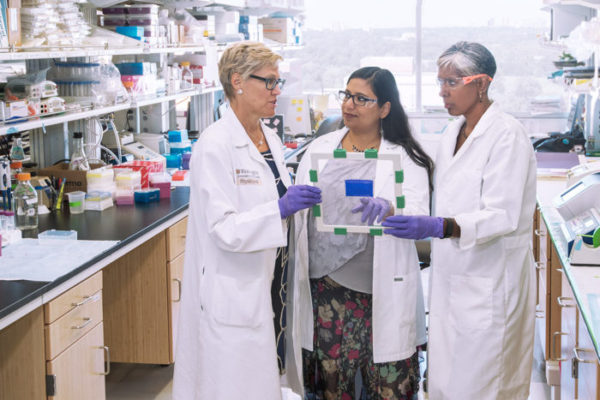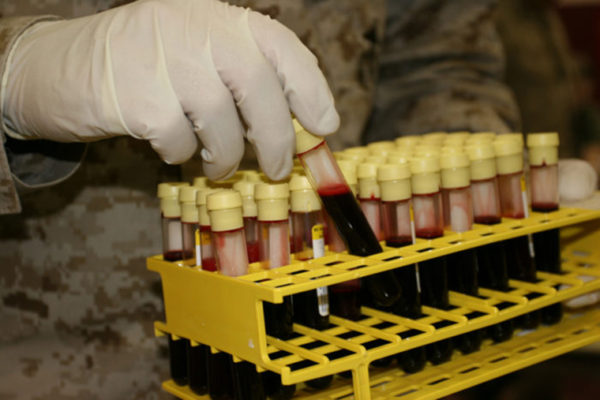Med school study examines firearms in the home
A survey of parents in Missouri and Illinois reveals that about half of the children in the families queried spent time in homes that have firearms. However, few reported talking about gun safety with their children’s pediatricians.
Consortium to investigate tau buildup in Alzheimer’s disease
Washington University School of Medicine in St. Louis will collaborate with the pharmaceutical companies AbbVie, Biogen, and Eli Lilly & Co. to investigate the buildup and clearance of tau protein in the brains of patients with Alzheimer’s disease.
Scientists find culprit responsible for calcified blood vessels in kidney disease
Scientists have implicated a type of stem cell in the calcification of blood vessels that is common in patients with chronic kidney disease. The study, led by researchers at Washington University School of Medicine in St. Louis, appeared Sept. 8 in the journal Cell Stem Cell.
A fresh take on the apparel business
Jacob Goodman and Josh Arbit once hated each other. Now they’re business partners. Read their story on FUSE: Igniting Innovation & Connecting Entrepreneurs.
Evidence of Zika virus found in tears
Researchers have found that Zika virus can live in eyes and have identified genetic material from the virus in tears, according to a study from the School of Medicine. The research, in mice, helps explain why some Zika patients develop eye disease, including a condition that can lead to permanent vision loss.
Even with genetic predisposition for lung cancer, quitting smoking reduces risk
Quitting smoking improves health and lowers odds of developing lung cancer. But a new study led by the School of Medicine shows that even among smokers with a genetic predisposition to smoking heavily and developing lung cancer at a young age, the benefits of quitting are significant.
New center focuses on women’s and men’s reproductive health
A new center at Washington University School of Medicine in St. Louis aims to bring together a cadre of faculty members to conduct basic, translational and clinical research focused on reproductive health.
Why ‘O’ blood types may be more likely to die of cholera
People with blood type O often get more severely ill from cholera than people of other blood types. New research from Washington University School of Medicine in St. Louis may explain why.
University to host Alan Alda ‘Communicating Science’ workshops
Washington University will host a four-day symposium Sept. 26-29 called “Communicating Science 2016.” The event, to be held at the Eric P. Newman Education Center on the Medical Campus, is geared toward helping scientists share news of their work effectively with people outside of their specific disciplines.
Excess weight linked to 8 more cancer types
An international team of researchers, including Washington University School of Medicine in St. Louis, has identified eight additional types of cancer linked to excess weight and obesity: stomach, liver, gall bladder, pancreas, ovary, meningioma (a type of brain tumor), thyroid cancer and the blood cancer multiple myeloma. Limiting weight gain over the decades could help to reduce the risk of these cancers, the data suggest.
View More Stories









